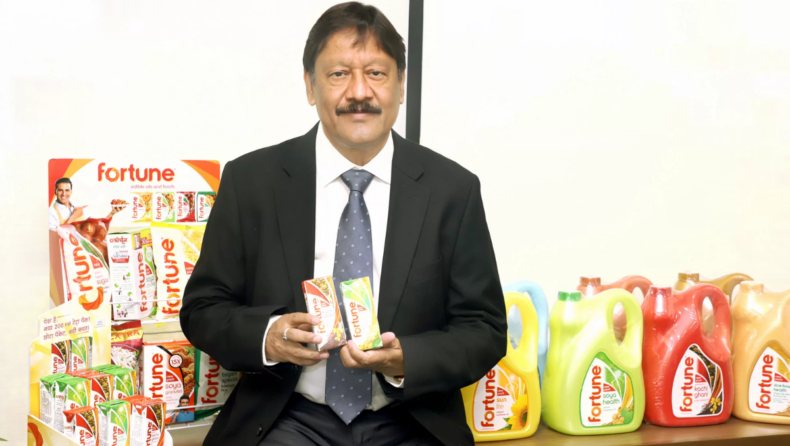
After the application of GST on unbranded, non-packaged food products, the company benefits. Angshu Mallick of Adani Wilmar talks about the effects of this on the FMCG business.
Adani Wilmar released its results for the first quarter (Q1) of this financial year (FY23), the company has gained a high amount of profits this quarter and the revenue generated has also increased.
The company’s Chief Executive Officer (CEO) and Managing Director (MD) said that the sales have increased after the application of Goods and Services Tax (GST) on unbranded food products.
In July 2022, the government applied 5% GST on unbranded prepackaged and labeled food items. This included rice, wheat, curd, lassi, buttermilk, and other food items.
This in turn increased the customer’s cost. Initially, unbranded and loose food items were preferred by customers due to their lower price, comparatively. After GST was announced on them, the price increased and was almost equal to the branded and packaged food items.
According to research, branded products have a share of nearly 10 percent in the packaged food market while 90 percent of the market is for unbranded or non-packaged food items.
For the branded food products, there was always a GST applicable of 5 percent and that is the reason it was high priced.
Within ten days of the application of this tax on unbranded food products the sales of Adani Wilmar’s food companies increased.
“Over the last few years, the regulation under which branded players had to pay 5 percent GST while unbranded players were exempt created a lot of confusion.
5 percent is a significant amount when we are talking about packaged rice which is being sold at Rs 30 or even wheat flour,” says Angshu Mallick.
How was Q1 for Adani Wilmar?
Adani Wilmar is one of the largest FMCG companies in India. Fast Moving Consumer Goods the goods or products that we use daily and are in constant demand. For example, rice, wheat, dals, etc. include foods, beverages as well as cosmetics.
Adani Wilmar is owned 50 percent by the Adani Group, India and 50 percent ownership is from a Singapore-based company Wilmar.
For the first quarter of this year, Adani Wilmar generated revenue of ₹14,732 crores which is greater than last year’s same quarter by 23 percent. The net profit recorded by the company is ₹194 crores, an increase of 10 percent from last year.
“Our FMCG and foods portfolio witnessed growth across the segments,” Angshu Mallick said.
The company’s food brand Fortune which was primarily found to sell oil now has a variety of products in the FMCG food sector. Out of the total revenue, the revenue generated from wheat flour increased by 33 percent, while rice increased by 73 percent.
Soya chunks and other value-added products rose by 21 percent this quarter. Despite the rising oil prices and the global crisis, the company recorded a Year-on-Year growth of 6 percent in oil products.
The food company’s volume has increased by 53 percent Year-on-Year (YoY). The segment’s total revenue is estimated at ₹860 crores.
The company’s CEO and MD, Angshu Mallick stated that due to the application of GST their sales have risen and it was a good decision made by the Government of India.
As the company progresses into the second quarter, they have made many decisions that will provide competitive pricing in the market.
Their packaged food items will have an edge in the market over the unbranded and labeled items.
The company’s strategies and plans will help them to build a bigger and better brand. It is still one of the largest FMCG companies in the country.













